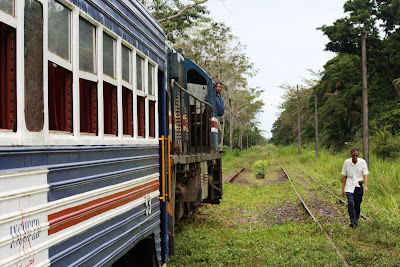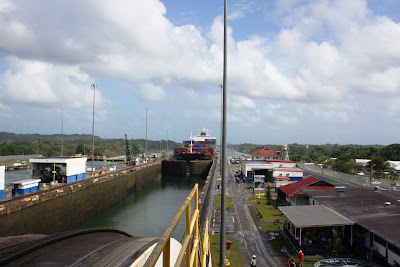And then, on the heels of their visit, one of our daughters, her husband, and their two beautiful boys (all of our grandchildren are, of course, beautiful), arrived for a week's stay. Diane and I pretty much cleared our calendars for the week, and for me that included blogging, emails, and all the other meaningless things on which I waste my time.

I can't overstate how much we enjoyed our time with the two little guys -- Ezekiel Francis (almost three) and Phineas John (one). During their stay we took them and their parents to a few of the more interesting local attractions. Among my favorites is Uncle Donald's Farm, a combination farm and zoo just a few miles away in Lady Lake, FL. Where else can a three-year-old milk a nanny goat, feed a herd of cows, and pet a pot-bellied pig?

A few days later we made the short drive over to the Gulf coast and visited the State Park at Homosassa to get up close and personal with the manatees and other local wildlife. Once again a wonderful time was had by all.

Above: Ezekiel milking a goat
So, you see, I had a valid excuse for staying away from the keyboard, an excuse that has now passed its expiration date.
Spending time with grandchildren got me thinking about the future of our Western culture, a future they will inherit from the rest of us. I hope they're a tough bunch, because they'll need to be a lot tougher than recent generations have proven to be.
Whenever I address the subject of our decaying culture, a lot of folks just label me a pessimist: "There he goes again, fretting about the future, always resisting the inevitable changes that accompany progress." Or they assume I simply can't handle the sophistication and complexities of today's evolving society and instead long for some idyllic past when the bulk of human activity was simpler and more understandable. They're wrong, of course. As a Christian I can be nothing but an optimist and I certainly have no desire to go backwards. Christianity points only in one direction, forward. And it points to a glorious future, a future when all the evil and silliness of humanity fade to nothing under the brilliant light of Jesus Christ.
No, my view of the future of Western civilization isn't based on emotion or nostalgia; it's based on the steady steam of hard evidence that only the spiritually and culturally blind can ignore. Indeed, that anyone doubts the decline of our culture truly amazes me. One need not be an historian to recognize the decline, but some understanding of history is necessary. (That's one of the problems with education today: history is no longer taught.) In the 1940s T. S. Eliot made this point in his marvelous essay, Notes Toward the Definition of Culture, when he wrote that: "...our own period is one of decline; that the standards of culture are lower than they were fifty years ago; and that the evidences of this decline are visible in every department of human activity." If Eliot was correct then -- and I believe he was -- then his comments are even more applicable today. Why, then, do so many people fail to recognize this decline, a decline that today seems to be accelerating?
I believe one reason is a societal failure to recognize the true nature of human progress. Most people seem to equate progress with the technological advances we have experienced over the past several hundred years. In other words, because we can travel anywhere in the world in a matter of hours, or because most people already or will soon carry telephones and web browsers in their pockets, the world must become a better place. I actually had a parishioner tell me recently that "Technology will ultimately make war obsolete. When everyone is on facebook, everyone is a friend." In truth, however, real human progress has little to do with technology and scientific advances, and has everything to do with our movement toward the proper end of man. But this fact apparently escapes most people.
People who think like my parishioner are, of course, easily manipulated by politicians, scientists, educators, business people and others who have a vested interest in keeping the current trends going in the same disastrous direction. Cultural decline and ultimate long-term disaster can also bring very real short-term gains in money, power and prestige to those with seats on the bandwagon.
I have no idea what's going to happen when that bandwagon stops running. It may simply run out of gas; it may run into another going in the opposite direction; or it may drive off a cliff. But one thing's for certain: it's picking up speed and can't keep going for long.
We Christians don't worry about all this because Jesus told us not to. And the folks on the bandwagon don't worry because they see no cause for worry. They think all is just peachy. The people I feel most sorry for are the atheists and agnostics who recognize what's happening but lack the consolation of faith and the knowledge that God turns all to good. It must be a very painful experience for them.
I'll have to come back to this subject again soon, but right now other things are pulling me away from my PC.
Blessings and God's Peace.





























